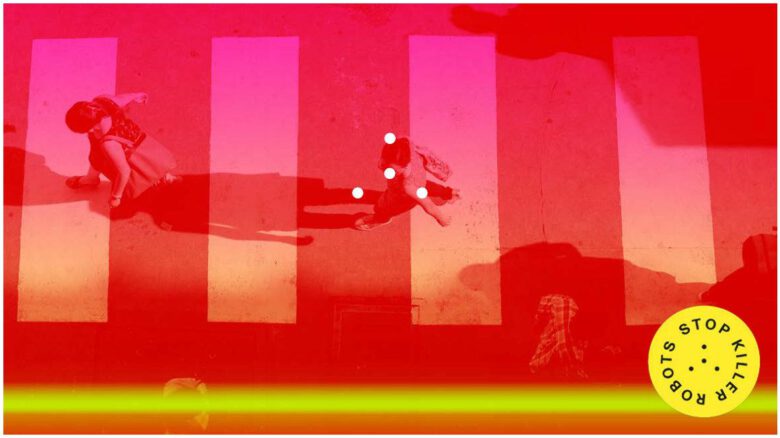Put bluntly, billions would die

With Ronald Wright, author of the book „A Short History of Progress,” we talk about how many people the Earth can support, the progress traps and the quarantining of the United States.
Ronald Wright – is a prize-winning novelist, historian, and essayist, published in ten languages. His nonfiction includes the number-one bestseller „Stolen Continents”, winner of the Gordon Montador Award and chosen as a book of the year by the ”Independent” and the”Sunday Times”. His first novel, ”A Scientific Romance”, won the 1997 David Higham Prize for Fiction and was chosen a book of the year by the ”Globe and Mail”, the ”Sunday Times”, and the „New York Times”.
Rafał Górski, Łukasz Wierzbicki: „If there is a way to something Better, it requires an absolute close look at the Worst,” said Thomas Hardy. So let’s take a look at “the worst” based on our „black box” data of civilizations that have collapsed.
In the book „A Short History of Progress” you write that „as we climbed the ladder of progress, we kicked out the rungs below. There is no going back without catastrophe.”[p.34] And further: “On the eve of the Steam Age in 1825, the world’s population was about 1 billion; if industrial civilization were to collapse, the sustainable population would fall back to a similar level. Put bluntly, billions would die.”[p.145, n10] There are already eight billion of us. How many people can the Earth support?
Ronald Wright: The career of our genus Homo can be summed up in three stages: about three million years of hunting and gathering; ten thousand years of agriculture; two hundred years of runaway industrialization. Our numbers have grown in step with the hastening pace and scale of technology: only a few million people in the world before the dawn of farming; one billion by the dawn of heavy industry in the 1820s; eight billion today.
Finding the right answer –the number who could thrive on Earth effectively forever –depends on accurately assessing the load we place on the world, and carefully restricting ourselves to levels of population and technology that Earth’s ecosystems can withstand over the long run; while also leaving room for other forms of life and natural shifts in climate, ecology and geology. From our history so far, it seems unlikely we have the ability or self-restraint to do that. Natural systems are linked together in complex ways which science only partly understands. Almost all are being swiftly undermined and degraded by human impact, especially since the Industrial Revolution.
Since 1970, the world’s human population has more than doubled while wildlife populations have fallen by two-thirds. Since 2000 alone, our numbers have swollen by 2 billion (or 33%). Demand on resources is growing much faster. And the problem is greatly worsened by widening economic and political inequality causing wanton destruction of nature by those who have too much, and desperate destruction by those who have too little. How can this end well? I wish I knew.
“If we want to understand the wars of the twenty-first century, forget about the ideological conflicts of the twenty-first century. Let’s read Malthus instead. In the future, we will fight for dwindling natural resources”, writes political philosopher John Gray in his book Straw Dogs. He thinks about people and other animals. Edward O. Wilson in the book “Consilience. The Unity of Knowledge” points out that the genocidal war between Hutu and Tutsi was, among others, war for water. Vice President of the United States Kamala Harris also says that future wars will be fought over water. What do you say? What will be the consequences of resource wars?
Economists and other defenders of the status quo often claim that Malthus has been proven wrong. They argue that technical advances in farming and transportation have greatly expanded the food supply, keeping it ahead of population growth most of the time since his book came out two centuries ago. That may be so, but only in the short run. Malthus’s warning has been sidestepped and postponed, not overcome. And we have done that by running up environmental costs and debts that can never be repaid. Aquifers of fossil water (in the United States, Australia, Argentina, etc) have been drained nearly dry; many are being poisoned by industrial contaminants, not least the deliberate injection of water mixed with chemicals for 'fracking.’ Rivers fed by glaciers are dwindling; wetlands and lakes are shrinking. Topsoil is being eroded and contaminated almost everywhere, and the whole planet is strewn with human rubbish from the deepest ocean trench to the highest mountain range. Fossil fuels, used not only to drive machinery but to make the fertilizer than feeds us, are getting more costly to extract and more dangerous to produce. Our two-century bonfire of fossil energy is now destabilizing the mild and predictable climate that has reigned on Earth since the end of the last Ice Age –the very conditions that enabled the development of agriculture.
Wars and revolutions have already been fought over land, oil, water and food. So yes, we can expect to see widening conflict as the years of cheap food and clean water come to an end.
Rutger Bregman in the book „Homo sapiens. The people are better than you think” presents an “Easter Island” story different from the one presented in Your book. It is based on the discoveries of Jan Boersema, which he described in the book „Survival of Easter Island: Dwindling Resources and Cultural Resilience”. Do You know the book and this point of view?
As far as I know neither Rutger Bregman nor Jan Boersema is a professional archaeologist, so Boersema’s notions of what happened on ancient Easter Island (Rapa Nui) cannot be called „discoveries.” I agree (and said in my book) that marauding Europeans were the main cause of depopulation and exploitation of the islanders after Europeans first arrived in the 18th century. (It is also possible, though unproven, that some got there a century or so earlier.) But sound archaeological evidence (Bahn & Flenley Easter Island, Earth Island 1992) shows that the island’s trees were wiped out by the year 1400, long before any Europeans could have set foot there. There can therefore be little doubt that the Polynesians, who found the island many centuries before anyone else, brought environmental changes which damaged the vegetation, earth, and water. These impacts happened over generations, and the islanders were likely unaware of the consequences until it was too late. The modern world can have no such excuse.
Of course we like to be told that humans are good enough and clever enough to get out of the mess they’ve made. Perhaps most human beings are kind, altruistic, and wise; at least when their personal interests aren’t being threatened. But from ancient times until today, history shows that such folk seldom run the show.
„Surviving Progress” is a documentary based on Your book. In Poland, for reasons unknown to me, distributors decided to change his title to “Progress Traps”. Was it Your idea to use the photo of a man hiding head underneath the ground as a poster? What does it mean?
The Polish title is fitting, as I coined the term „progress traps” in A Short History of Progress to describe seductive, seemingly benign inventions or developments which upon reaching a certain scale lead to catastrophe. I suggested we fell into the first of these in the late Palaeolithic period, when „better” hunting techniques led to the elimination of many big species (mammoths, for one) and the ruin of hunting as the main way of life. The next big trap came with the development of irrigation on the hot plains of Sumer. Over centuries, this led to a build-up of salt in the farmland that eventually brought Sumerian civilization down. If we fail to mend our ways, I fear that civilization itself may prove to be the biggest progress trap of all.
The original cover on many of the book’s editions showed an ape sitting on a barstool, but I also like the one you mention (though I can’t claim credit for either). The latter symbolises the English saying „to bury your head in the sand,” which means to ignore an obvious threat or problem by not looking at it.
In 2021, the book „How to avoid climate disaster” was published. Bill Gates points: “The solutions we already”. I read in it that technology can save the world. Do You agree?
Technology is what has brought us to our present crisis, so I think it unwise to expect that more of it will save us. We’ve learnt, for example, how to extract resources from nature very efficiently, but not how to repair the damage to ecosystems we are only just beginning to understand. Along with deep-sea mining, new technologies such as artificial intelligence and planetary engineering are potentially so powerful and carry such great risks that they are highly likely to be progress traps.
We already know how to deal with global warming, industrial pollution, and overpopulation. We already have the technical means to do so. What is lacking is political will and worldwide co-operation to confront rapacious vested interests such as big oil, big money, big weapons (etc) and the demagogues these industries support. Giant corporations hold sway over media and governments, and set their own immediate profit above life, health, and future generations of the human species and all others.
The book “What Is America” is about to be released in Poland. It was written before Barrack Obama became the President. Day by day life adds another unwritten chapter to Your book. Could You imagine the title of that last chapter and suggest the punchline?
I could imagine but I could be wrong by next year! After Obama came Trump, a dystopian figure whose greatest achievement was to make George W. Bush look presidential. Now, after Biden’s first term, there is the frightful possibility that Trump may return to power. If that happens, the world’s only hope of dealing with our environmental and political crises will be to put the United States in quarantine –and press ahead without the country Jefferson called „the world’s best hope”.
Rafał Górski, Łukasz Wierzbicki





